The Ultimate Guide to Campervan Iceland in Winter: A True Adventure
Planning a winter road trip to Iceland? You're in for a treat! Forget everything you think you know about off-season travel. Iceland in the winter months is a completely different world. It’s a world of ice, fire, and the most spectacular night skies you can imagine.
If you’re wondering if it’s a good idea to rent a campervan for your trip, the answer is a resounding yes! We think that taking a campervan in Iceland in winter is the single best way to experience the magic of this incredible country.
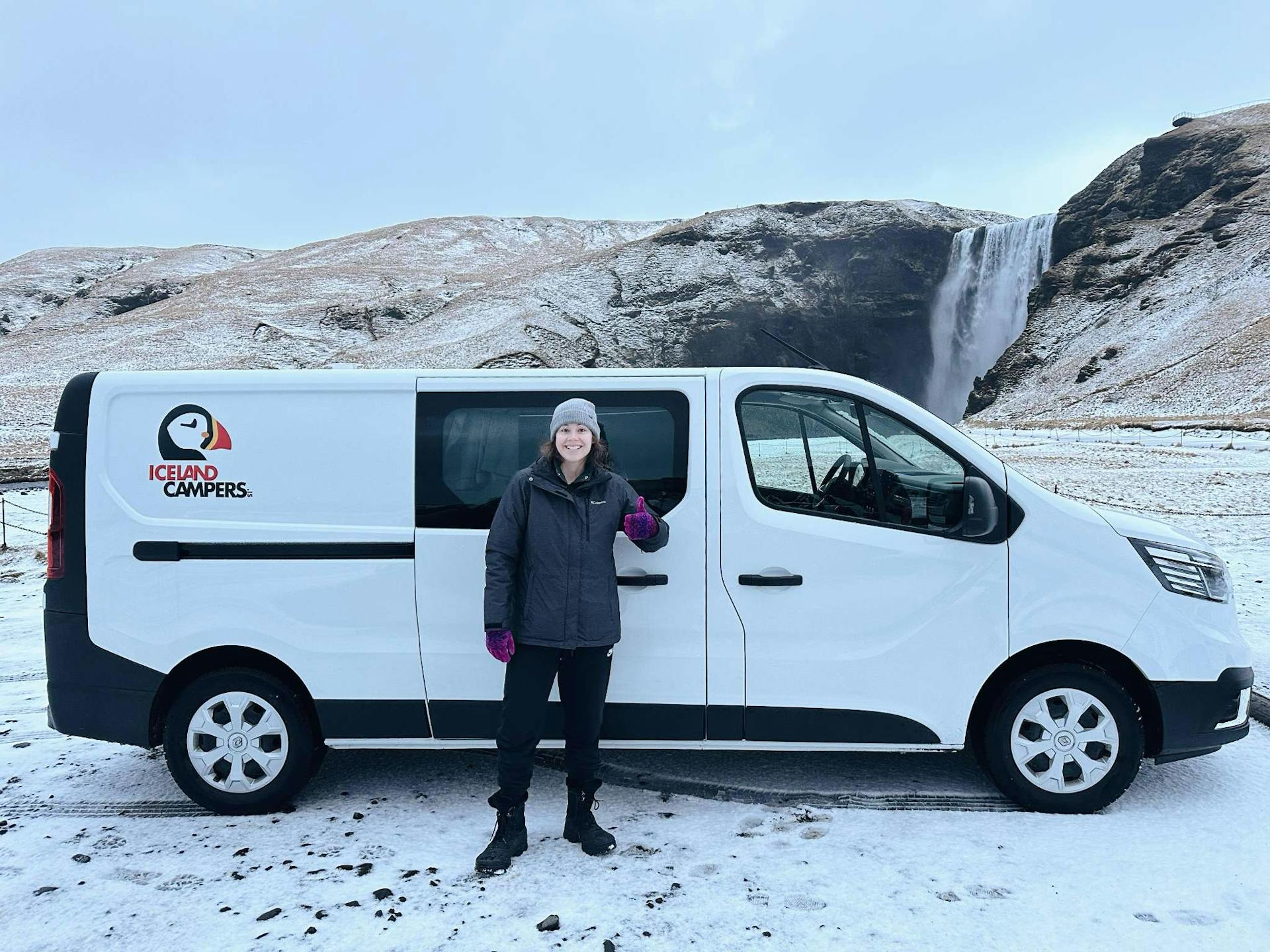
Why Choose Campervan Iceland in Winter?
Is it worth getting a campervan in Iceland, especially during the wintertime? Absolutely. Many people think the winter weather makes a campervan impossible. That’s just not true. In fact, a campervan gives you the freedom you just won't get with hotels. Imagine driving along the ring road, finding the perfect spot, and just pulling over for the night. You are completely self-sufficient. That means your schedule is yours alone.
This is especially helpful when dealing with the unpredictable Icelandic winter. We love this way of seeing the country, and we know you will too. The comfort and flexibility make winter travel in Iceland an unforgettable experience.
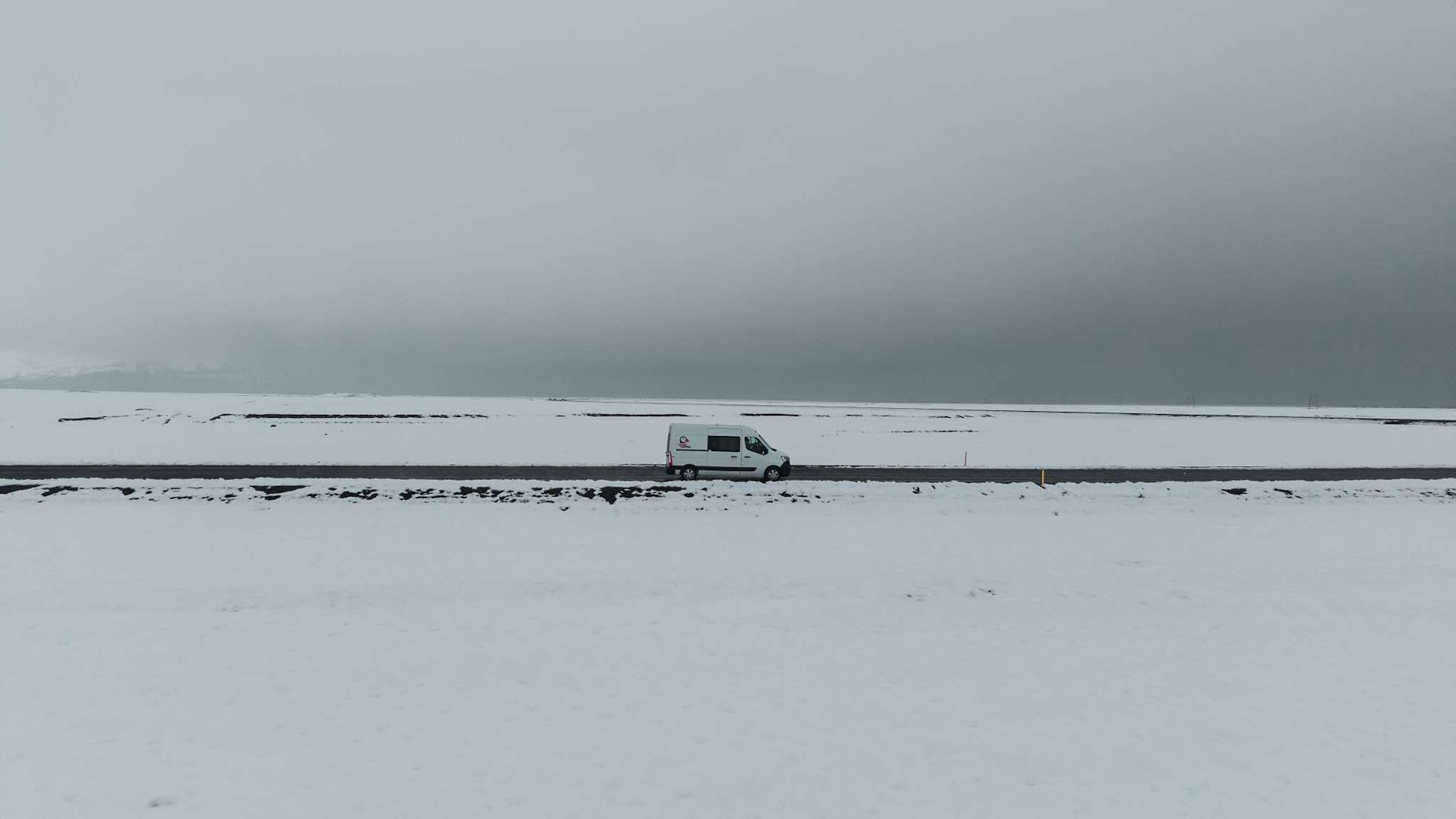
Embracing the Off-Season Charm
The biggest draw for many is the sheer quietness of the off-season. There are definitely fewer tourists around during winter. This makes the major sites feel more intimate and special.
You can actually enjoy the waterfalls and the drama of the Golden Circle without fighting crowds. It makes camping in Iceland much more peaceful. This solitude is part of what makes Iceland in winter so appealing. It’s the perfect time for a truly personal road trip.
Answering the Big Question: Can You Camp in Iceland in Winter?
Yes, you can absolutely camp in Iceland in winter. In fact, winter camping is growing in popularity every year. It’s a fantastic way to keep your costs down and maximise your adventure time. However, you cannot just stop anywhere you like.
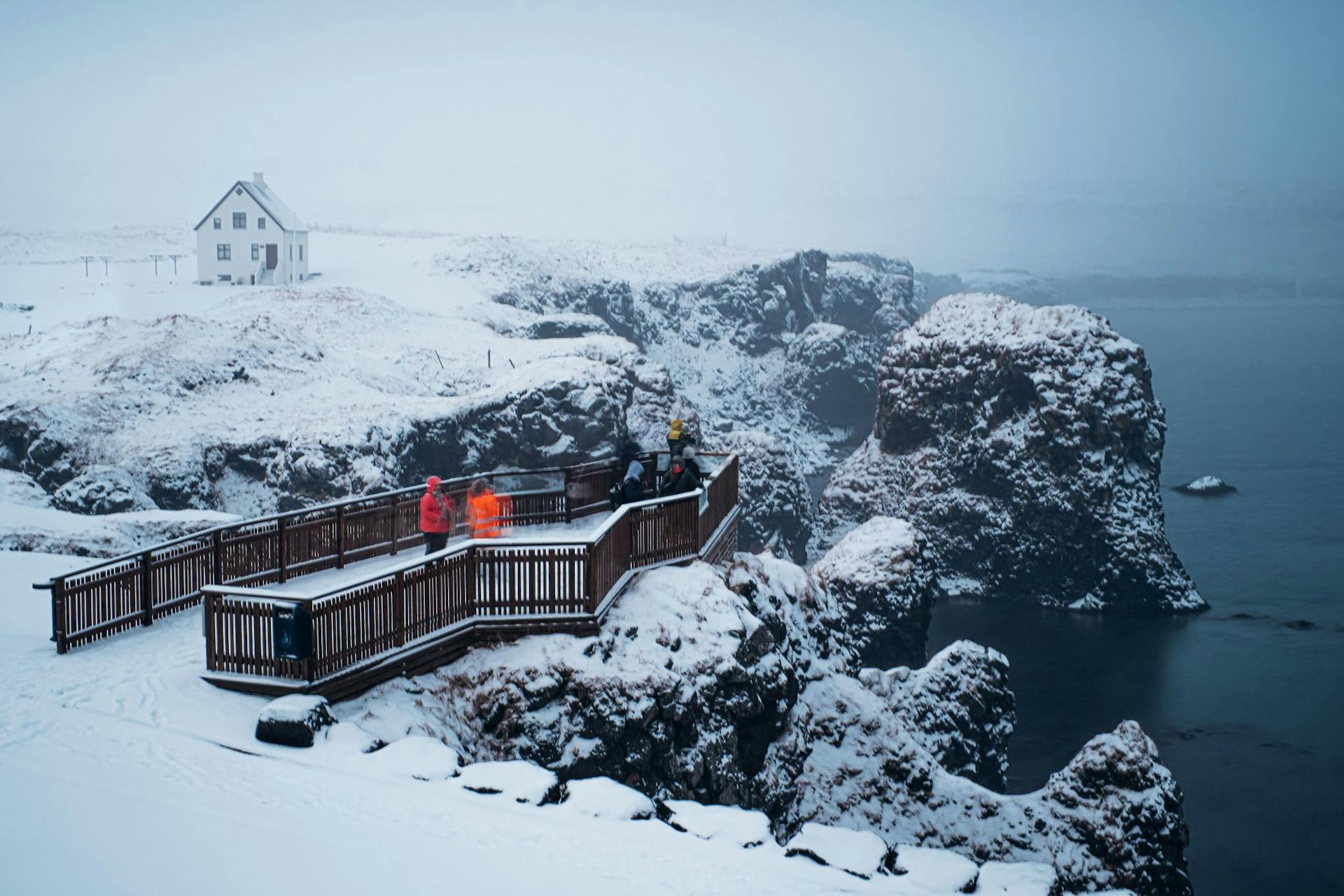
Wild Camping Rules: Can you sleep anywhere in a campervan in Iceland?
Unfortunately, the answer is a firm no. You cannot just sleep anywhere you want. Iceland has very strict rules against wild camping. This is even more important in winter conditions. You must always stay at an officially designated campsite.
Luckily, there are many campsites open year-round that are ready to welcome you. This is the only legal and responsible way to enjoy your Icelandic winter camping adventure. It also means you have access to facilities, which makes staying warm much easier.
Can you sleep in a van in Iceland in the winter?
Yes! All of our vans are equipped to handle the cold weather. Our vehicles have auxiliary heating systems that run on the car’s fuel, keeping the cabin toasty. You won't have to worry about the deep chill of a cold Icelandic night.
For extra warmth, we strongly recommend you consider renting extra sleeping bags from us. Good sleeping bags and proper winter gear make all the difference for a comfortable night.
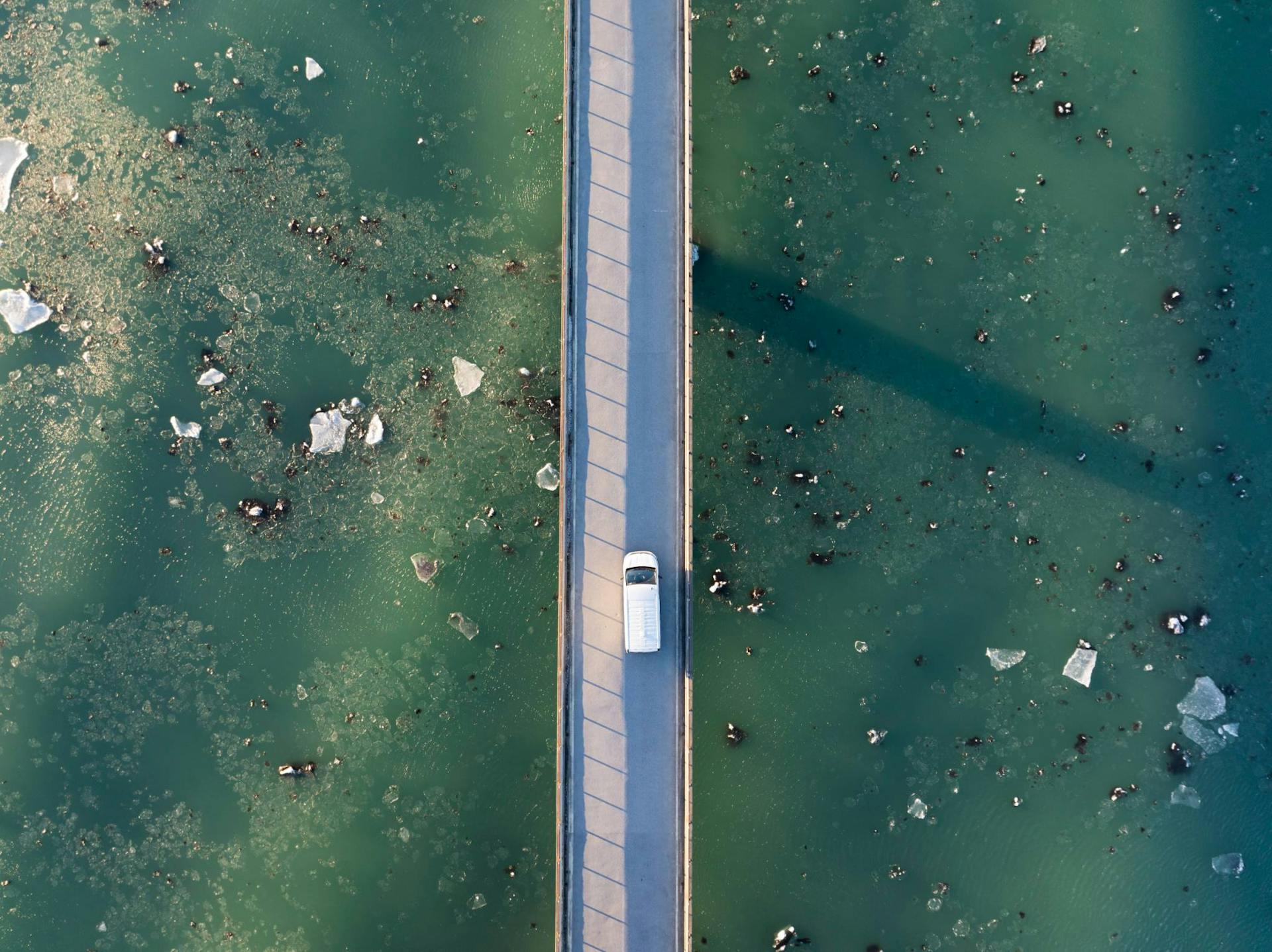
Winter Driving: Your Road Trip Manual
The most crucial part of your winter travel preparation is understanding the driving. Winter driving in Iceland is not like driving at home. The Icelandic roads require respect and constant attention, especially during winter. You need to be prepared for slippery roads and sudden changes.
The Power of Weather Warnings
Before you start driving, you must check the weather forecasts and road conditions. This is not a suggestion; it is a necessity for safe winter travel. You need to know the latest weather warnings before you leave a campsite. The police and rescue teams take these weather warnings very seriously. If you see orange or red warnings, you must alter your travel plans.
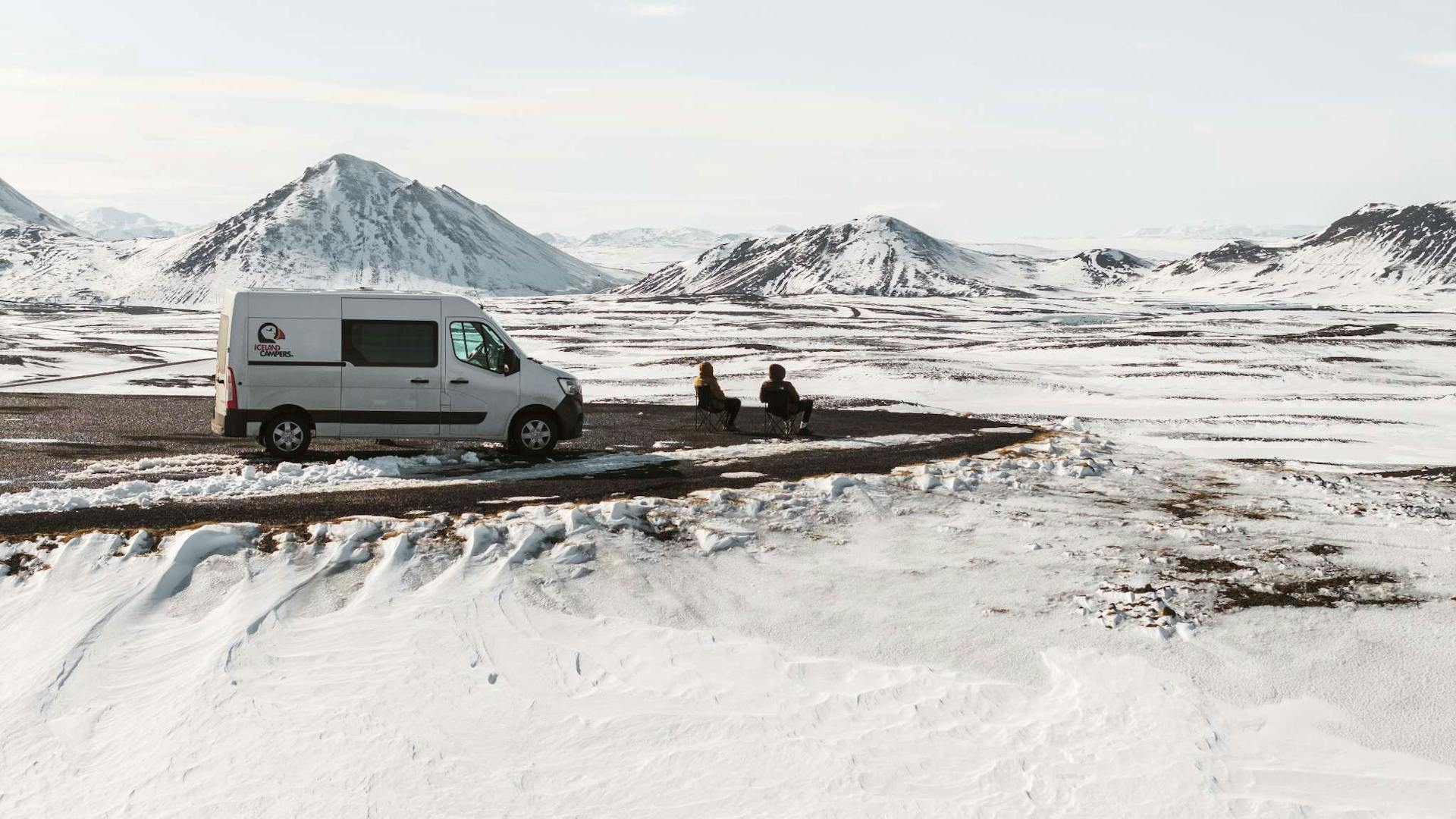
Road Conditions and Road Closures
The state of the road conditions can change quickly due to sudden weather. Road closures happen all the time in winter. This is done for your safety and to prevent accidents. Do not attempt to drive on closed roads. It's illegal and incredibly dangerous. Always check the official road condition website before setting off to your next campsite.
Dealing with Black Ice and Icy Roads
The biggest hazards of winter driving are black ice and icy roads. Black ice is nearly invisible and one of the biggest hazards. It makes the Icelandic roads extremely treacherous.
You must drastically reduce your speed when driving on icy roads. If you feel the vehicle slipping, you should ease off the accelerator and try to maintain control. Sudden steering can lead to disaster on black ice.
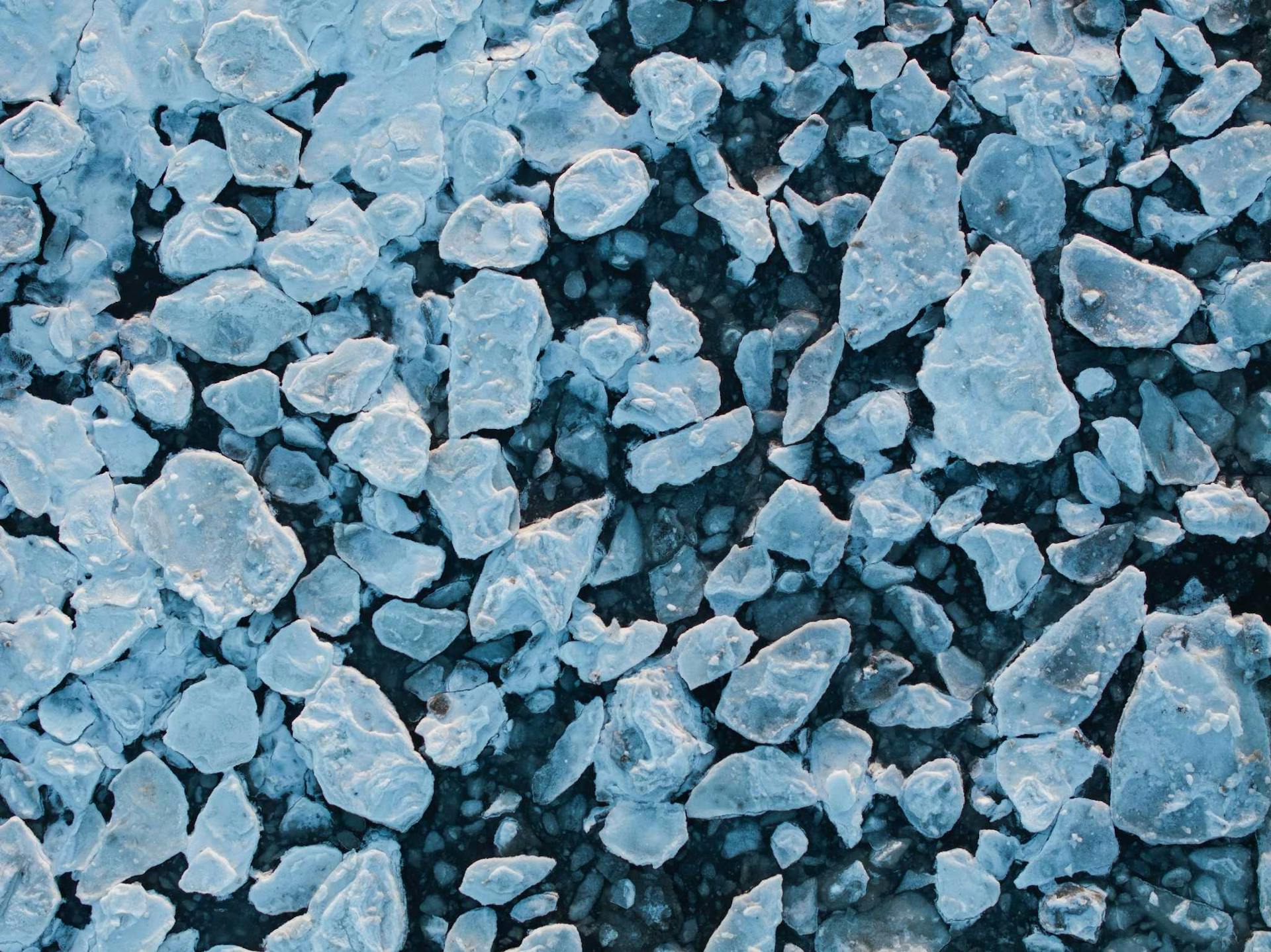
Studded Tires: Your Best Friend
All our vehicles are fitted with studded tires during the winter months. These studded tires provide much better grip on icy roads and packed snow. They make a huge difference to your safety and confidence. Even with studded tires, you must still exercise caution and drive slowly.
Wind Speeds and Strong Winds
Iceland's wind is infamous, and it's a huge factor in winter driving. Strong winds can feel like a solid force pushing your van. You need to be aware of the predicted wind speeds for your route. In severe cases, strong winds can be powerful enough to damage your vehicle. If the forecast shows high wind speeds, please wait it out at a well-maintained campsite.
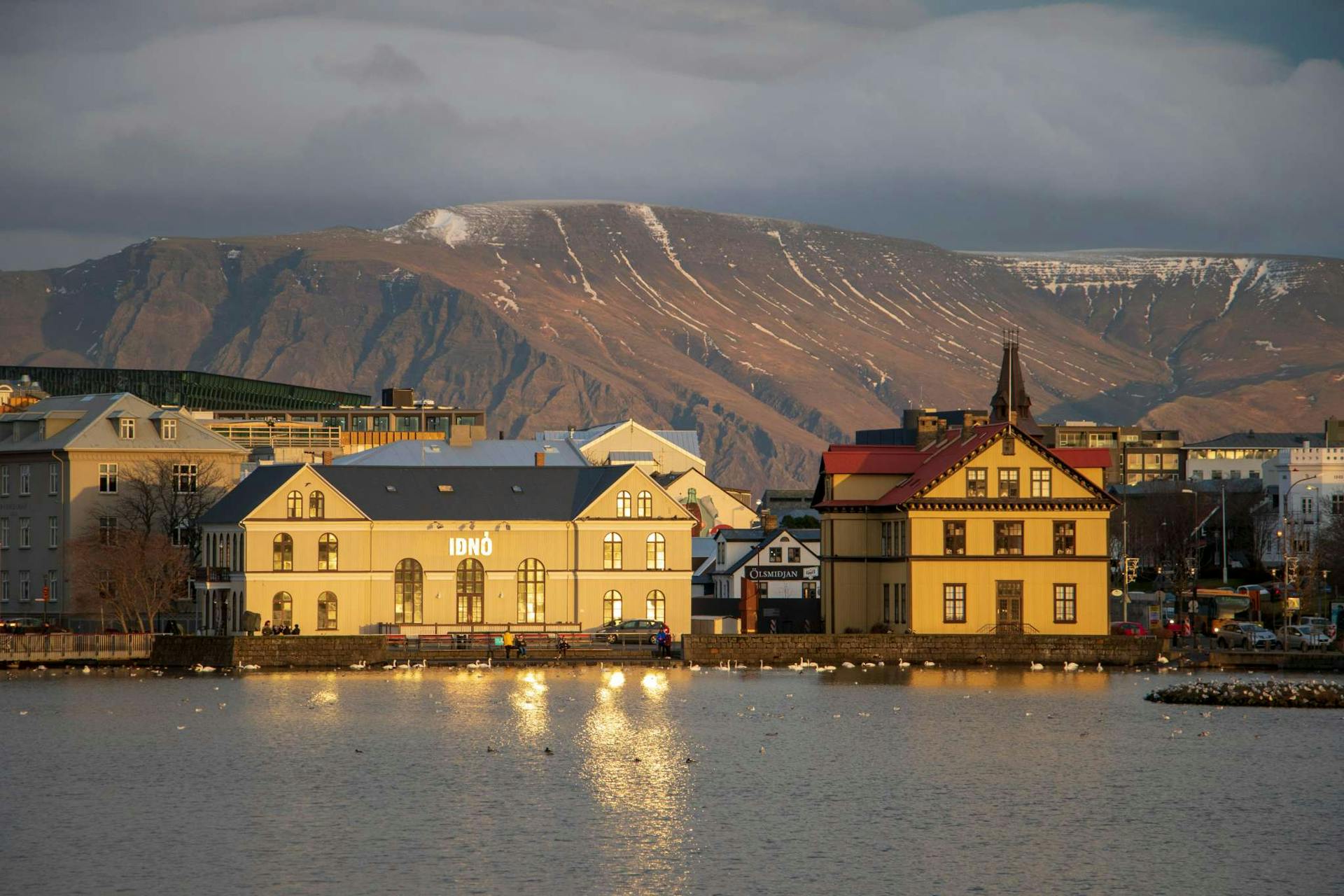
Our Vehicle Fleet: Manual Cars Only
A quick but essential note on our vehicles: We only offer manual cars. We do not have automatics. This gives you a feeling of true connection to the road. Being comfortable with a manual gearbox and the steering wheel is key to your trip. It helps you manage the vehicle’s power and control on slippery roads.
A Note on 4x4s and F-Roads
We want you to have a safe and stress-free holiday. That's why we only rent out 2WD campers. We do not offer 4x4 vehicles. Also, we do not allow our vehicles on F roads at any time of year.
In winter, F roads are all strictly closed anyway. Do not take unnecessary risks attempting to find them. Sticking to the main routes like the ring road and the Golden Circle is the smart way to go.
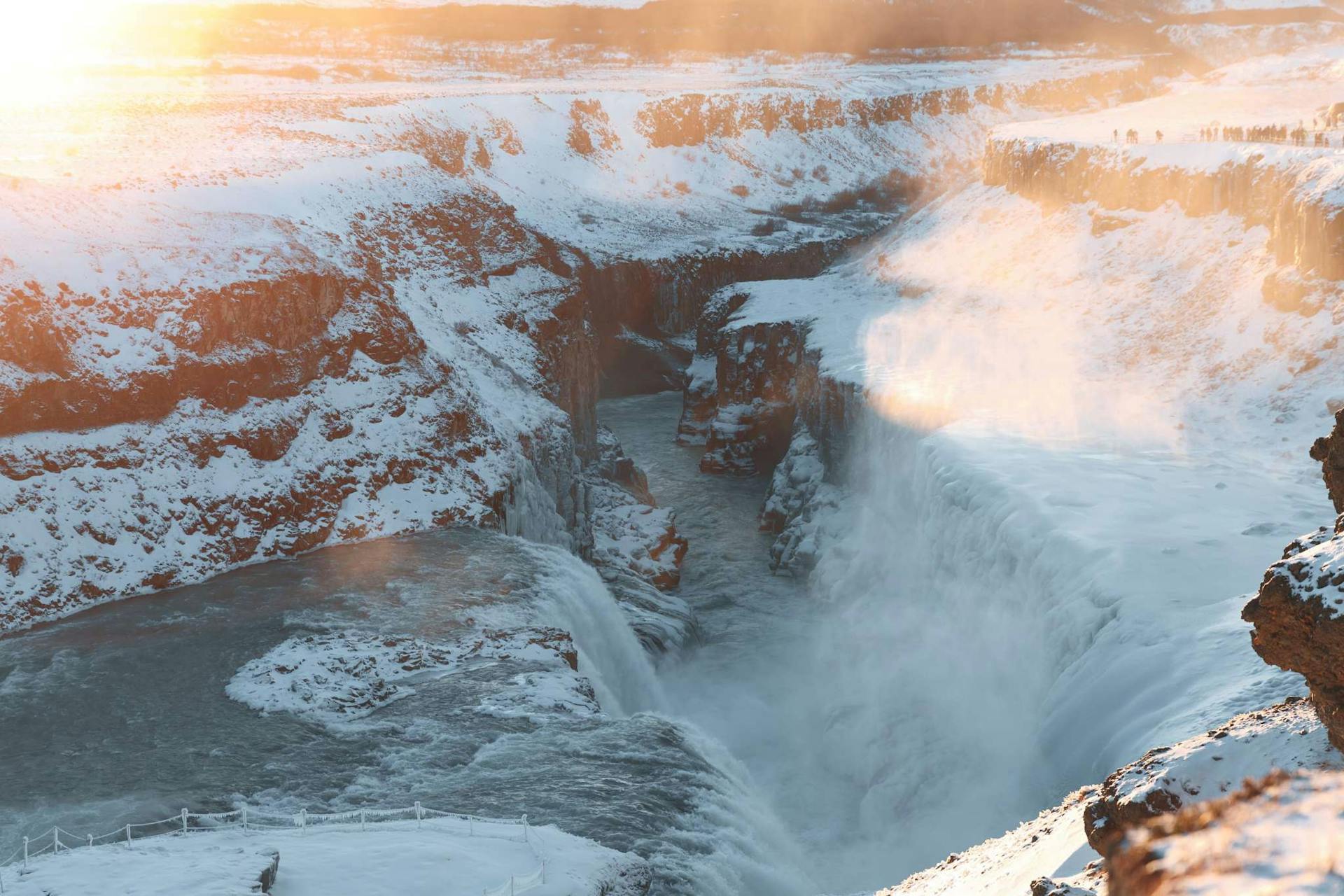
Navigating Your Winter Road Trip
Planning your route in winter requires a lot more flexibility. Always check the distance between gas stations before you travel. They can be fewer and further between in remote areas.
Using Google Maps and Offline Maps
We recommend you download offline maps for your journey. While cell service is generally good, it can drop in remote areas. Google Maps is a great tool, but always cross-reference its routes with the official road conditions website. Google Maps may not always have the most up-to-date information on temporary road closures.
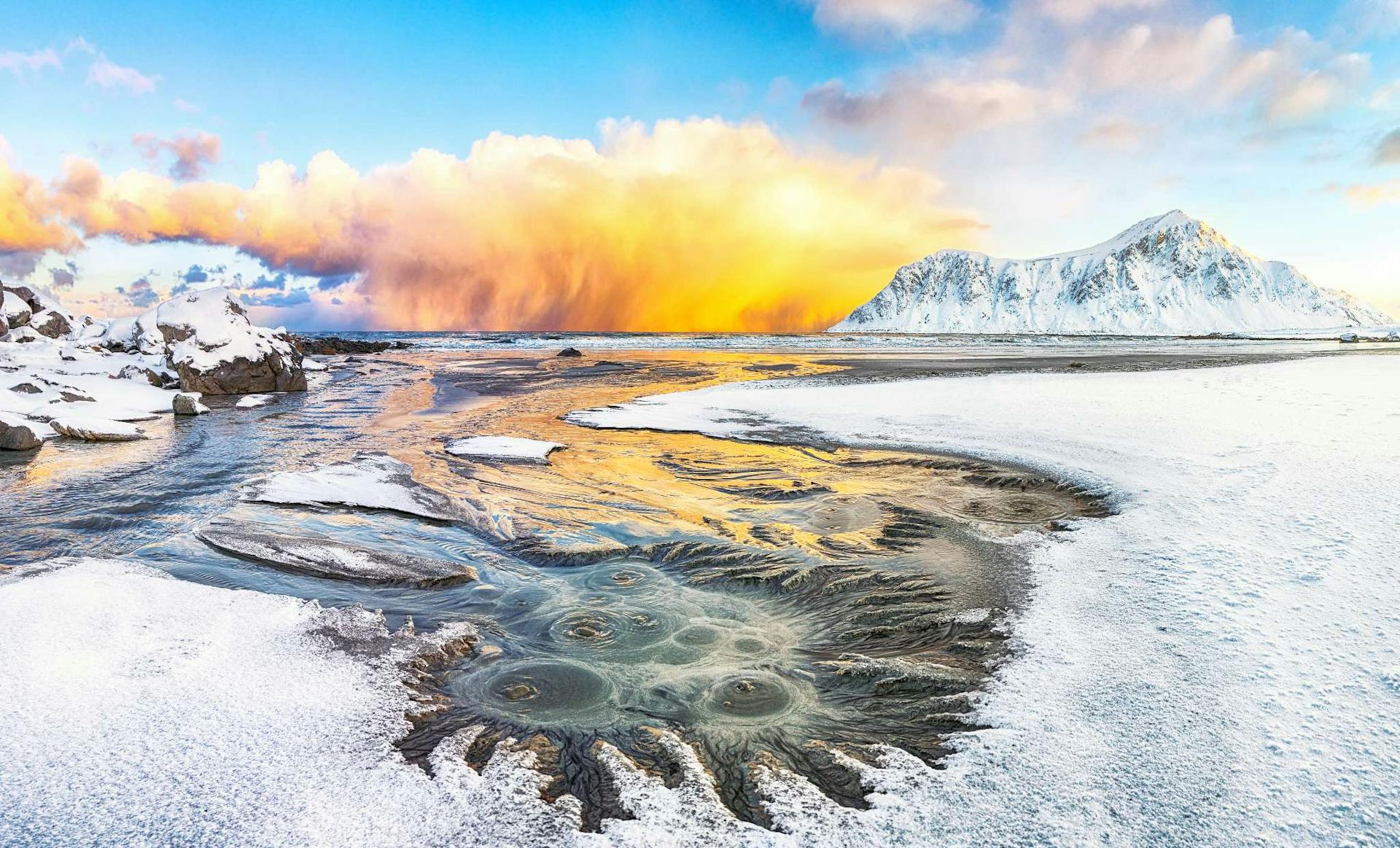
Don't Forget to Check Your GPS Location
Always know your gps location in case of an emergency. If you need to contact rescue teams, they will need to know exactly where you are. It’s part of being a responsible winter traveller.
The Joy of Few Daylight Hours
You’ll have limited daylight hours in the peak of winter. This isn’t a downside; it’s an opportunity! Shorter daylight hours mean more time for northern lights viewing. It also means that you can plan your driving for the brightest part of the day. Even with limited daylight hours, the light we do get is spectacular. It's often referred to as "The Golden Hour" all day long.
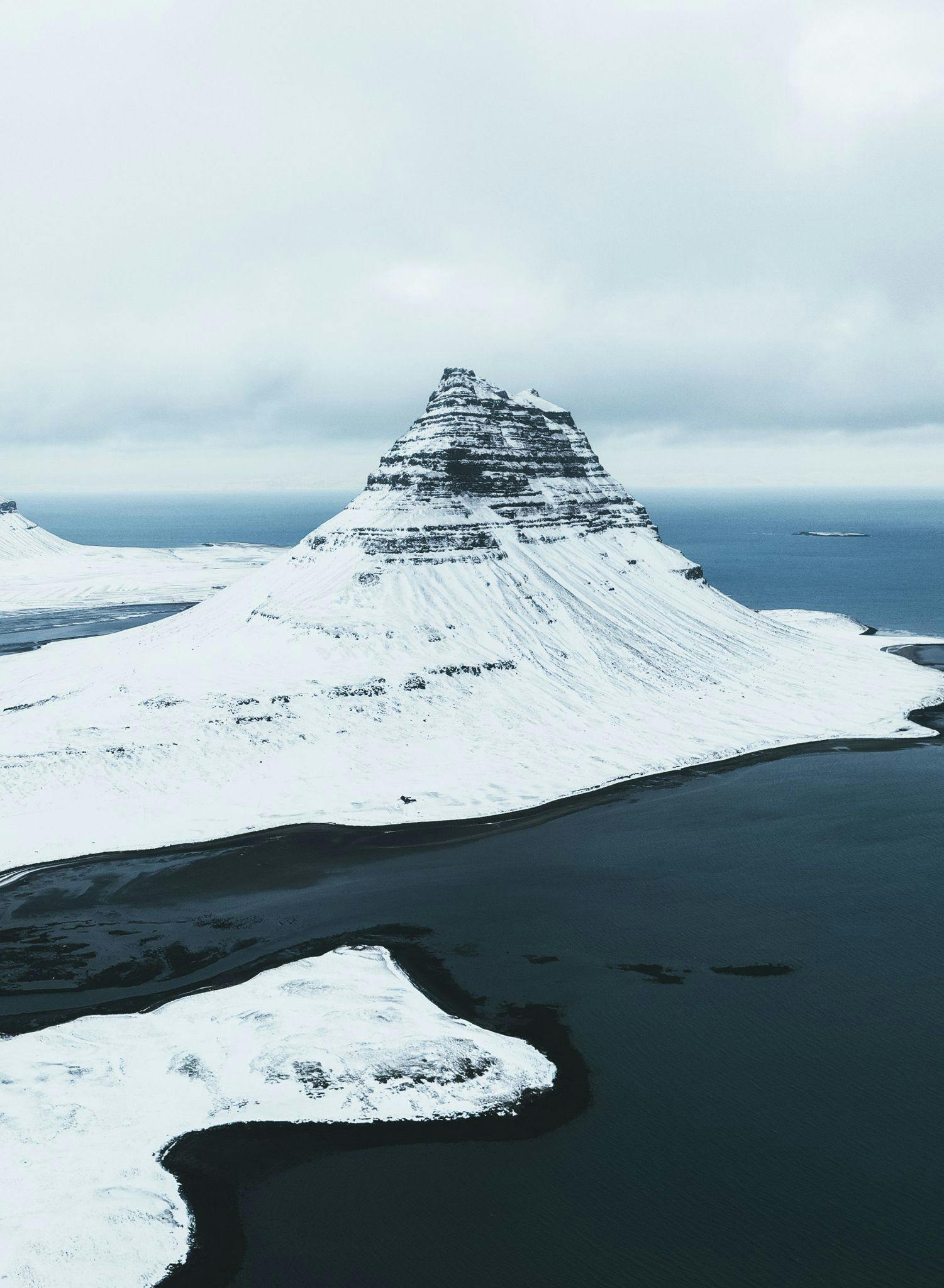
What to See: Winter Activities in Iceland
This is why you came! Winter means the biggest rewards for your courage.
Chasing the Northern Lights
The northern lights are the top reason for many people visiting Iceland in winter. You need clear skies and low light pollution to see them well. Check the aurora forecast daily; it’s a crucial step in your evening travel plans. Park up in a safe, quiet place and look up. It’s truly magical. The short daylight hours make spotting the northern lights much easier.
The Essential Golden Circle
The golden circle is a must-do, even in winter conditions. The powerful Geysir, the beautiful Gullfoss waterfall, and Þingvellir National Park are stunning. Visiting the Golden Circle in the off-season gives it a whole new atmosphere. The drive is usually well-maintained and one of the most reliable main routes.
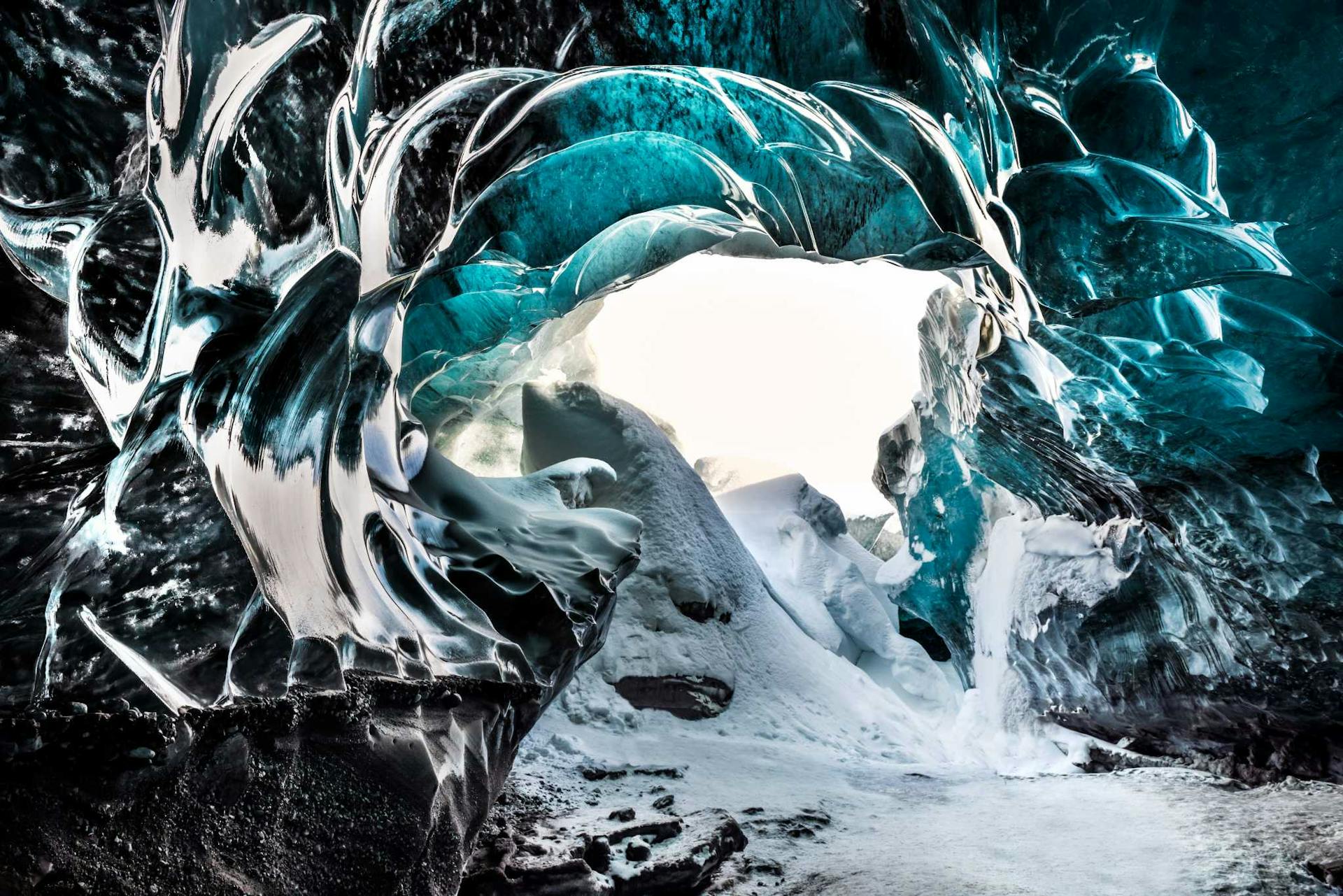
Ice Caves and Glacier Tours
Booking a guided tour to see ice caves is one of the most exciting winter activities. These tours often take you into Vatnajokull National Park. The blue ice of the ice caves is an unbelievable sight. We recommend pre-booking your glacier tours as they fill up quickly in the winter months.
Jökulsárlón and Diamond Beach
You absolutely must take the road trip out to Jökulsárlón Glacier Lagoon. Icebergs float from the glacier and wash up on Diamond Beach. The contrast of the ice and the black sand makes for an incredible view on Diamond Beach. It’s one of the most stunning sights on the entire ring road.
Soaking in the Hot Springs
Iceland’s geology means there are countless hot springs to enjoy. A nice long soak in one of the geothermal pools is the perfect antidote to the cold weather. There are many smaller, local hot springs that offer a genuine Icelandic experience. Finding the perfect secluded hot springs will make your whole trip.
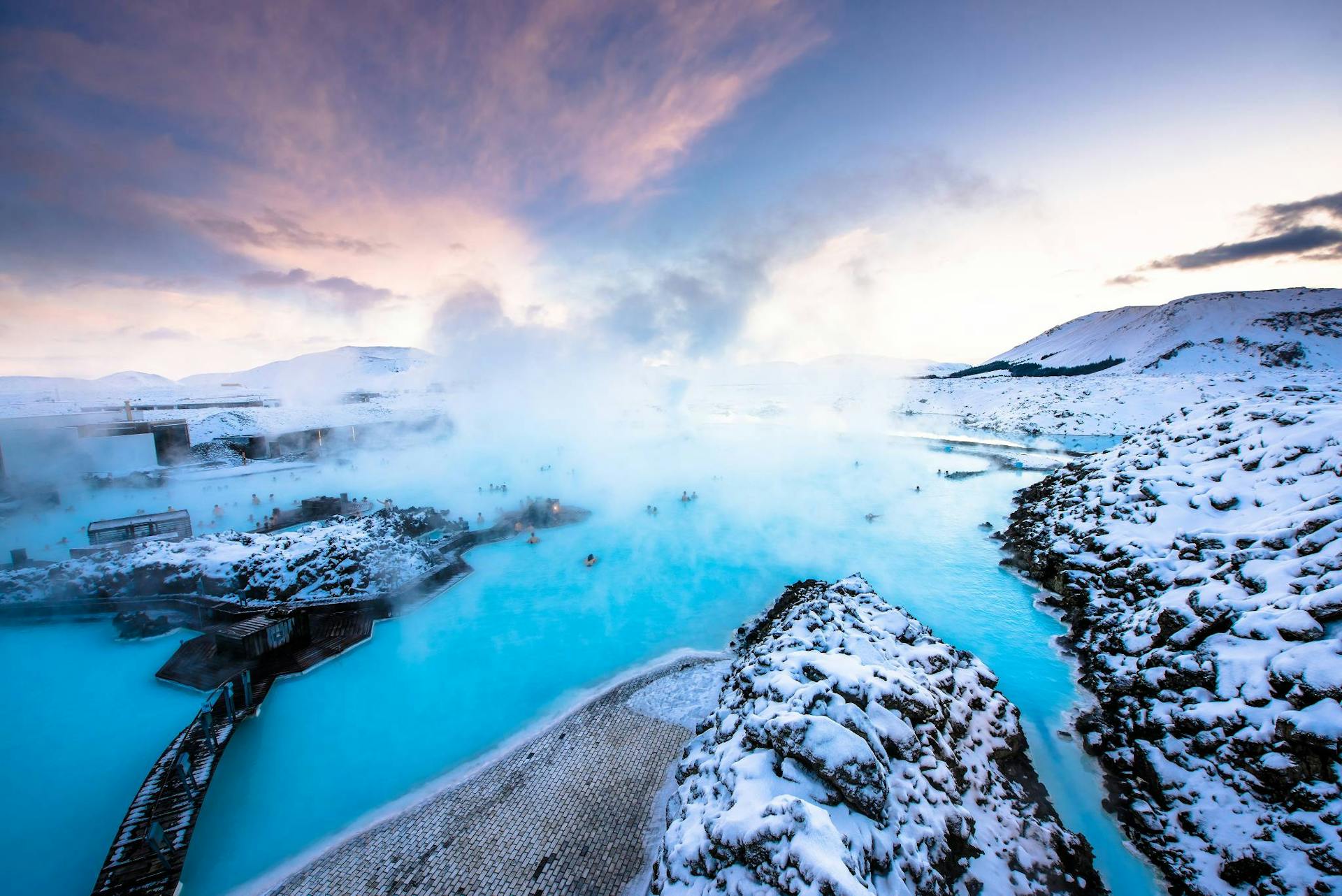
Deep Dive on Safety and Preparation
Let’s take a deep dive into making your adventure as stress-free as possible.
Packing Your Winter Gear
You need good, waterproof winter gear. Think layers, layers, layers. Warm hats, gloves, and waterproof outerwear are key. It will make camping in Iceland much more enjoyable. A good flask for a hot drink is also essential; a hot drink makes all the difference when you step out of the van.
Prepare for Snow and Reduced Visibility
Heavy snowfall can quickly reduce visibility. Be prepared to slow right down or even pull over until it passes. Snow can quickly lead to slippery roads and a challenging environment. Heavy rain combined with freezing temperatures can also lead to icy roads. This is why caution and a slower pace are so crucial for winter driving.
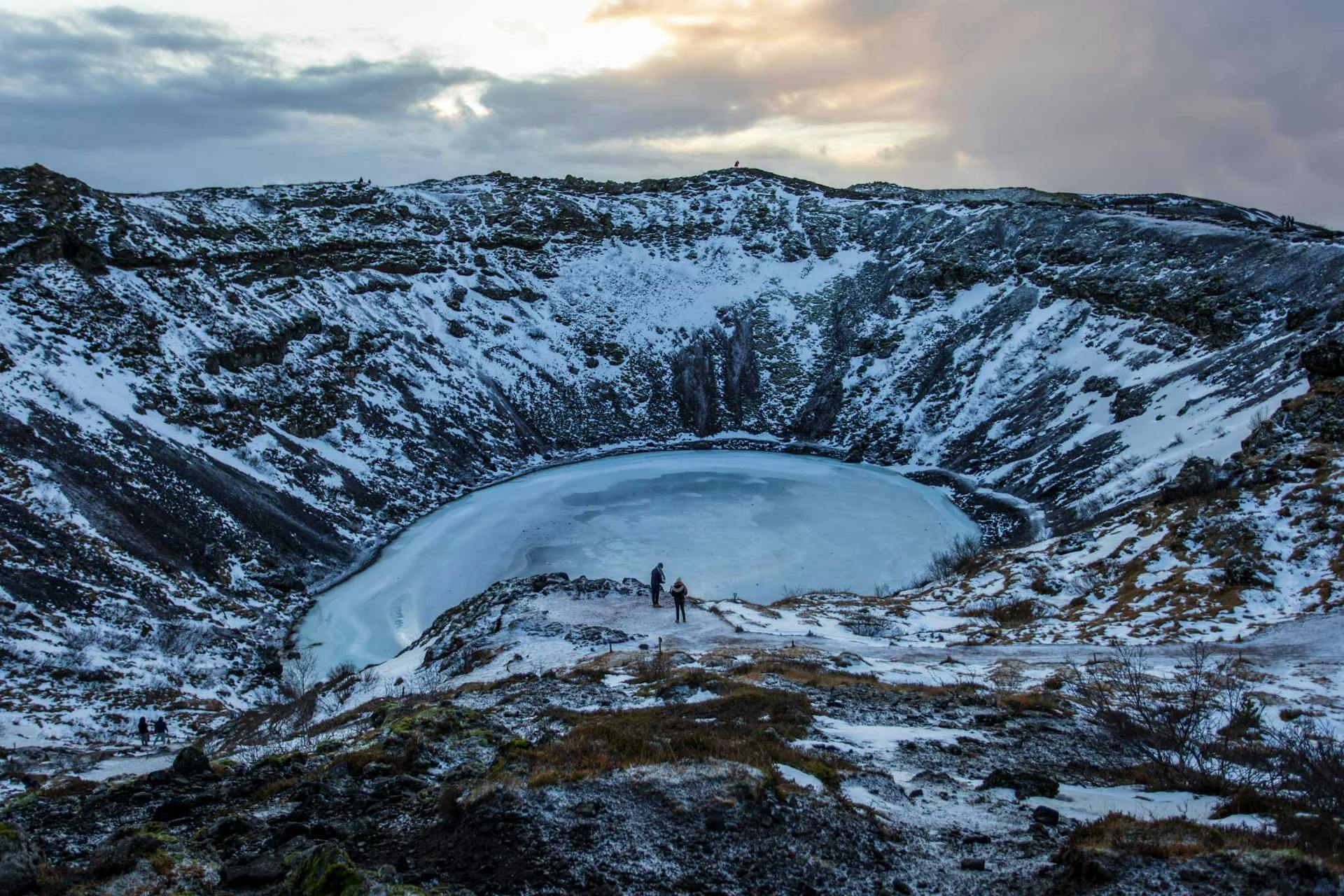
Check Your Travel Plans
Always have a backup plan for your travel plans. Because of potential road closures and bad weather, you need flexibility. If the ring road is closed, know a safe, local alternative.
Keeping a Safe Distance at All Times
During winter driving, you must increase your following distance dramatically. Allow for plenty of space between you and the car ahead. Maintain a safe distance to give yourself time to react to black ice or sudden braking. This is a simple step, but it mitigates the biggest hazards.
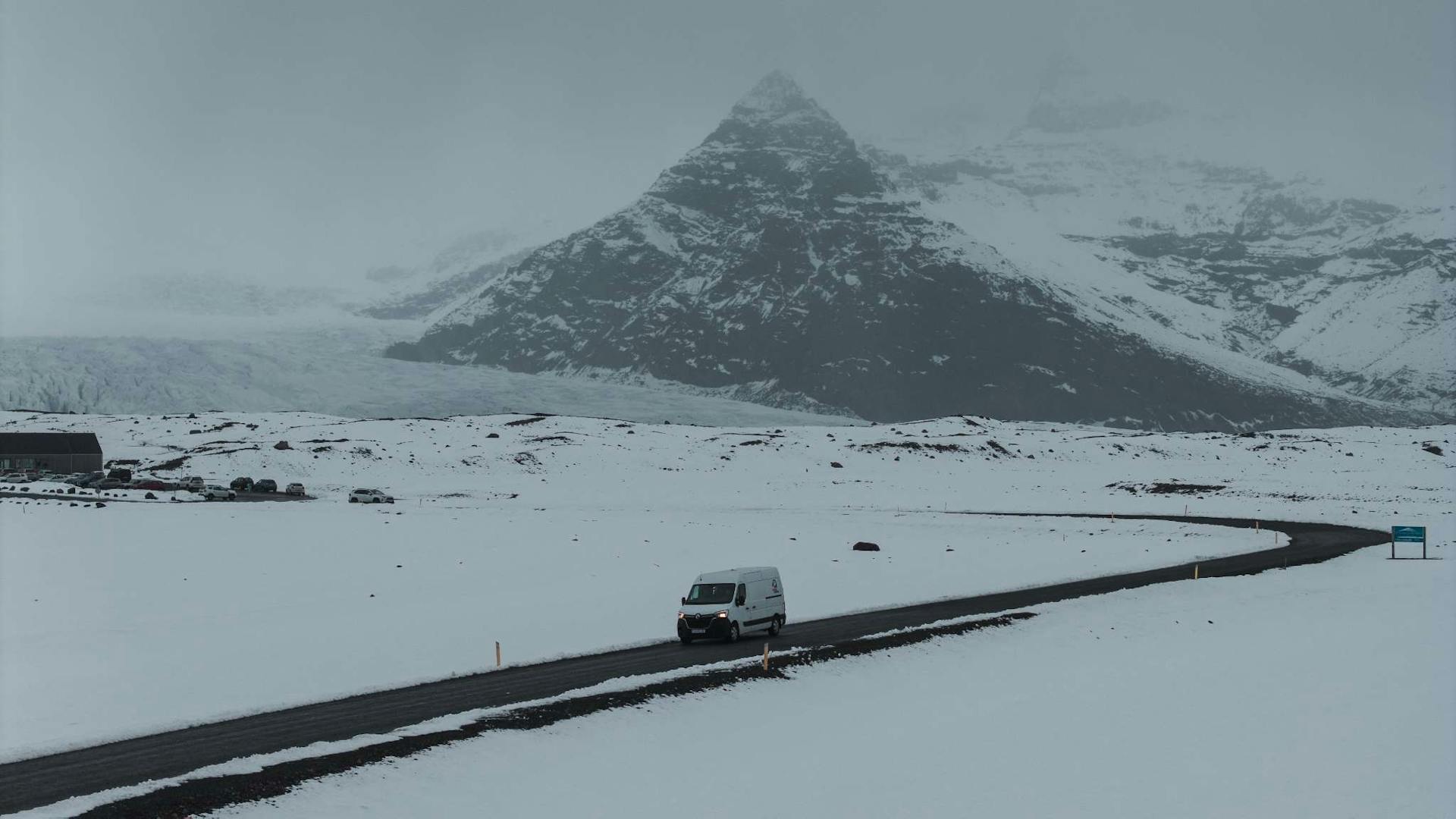
Don't Forget the Extras
Remember, you can always add excellent extras to your booking with us! Whether it's extra sleeping bags, a table and chairs for outside, or a WiFi modem, we have you covered. These little additions can take your winter camping experience from great to perfect. You can see all our options here: Iceland Campers Extras.
Your Stress-Free Campervan Iceland in Winter Adventure Awaits
A campervan in Iceland in winter is not for the faint-hearted, but the rewards are huge. It’s a chance to see a country at its most dramatic and beautiful. Imagine the clear skies above as you search for the northern lights after a day of incredible sightseeing. The off-season experience is truly unique. Camping in Iceland during this time is an adventure you will talk about for years.
Winter means less traffic, more raw nature, and a true sense of exploration. We are ready to help you plan the perfect winter travel road trip. Have a deep dive into our well-maintained fleet and start building your adventure today.
Don’t let the Icelandic winter camping myths stop you. We are here to make your winter camping experience safe, comfortable, and absolutely unforgettable.
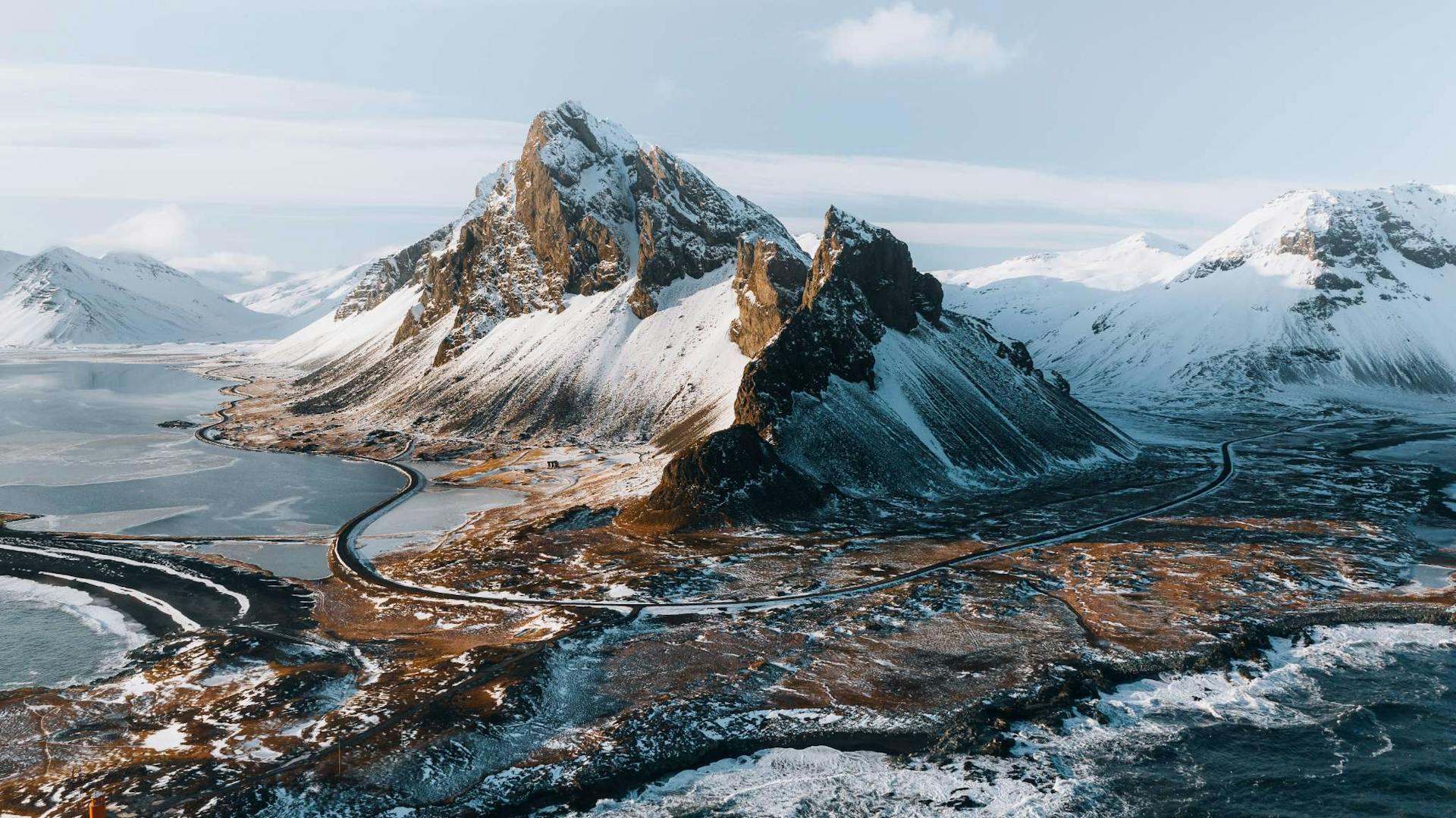
Ready to start your adventure?
Check out our full range of manual campers and book your dream winter road trip!
Book Your Campervan Here: https://icelandcampers.is/
Frequently Asked Questions (FAQs)
Can I drive the Ring Road in the winter?
Yes, the ring road is kept as clear as possible throughout the winter months. However, be aware that sections can close due to bad weather, strong winds, or excessive snow. You must check the road and weather conditions every morning before setting off. Always plan for extra time.
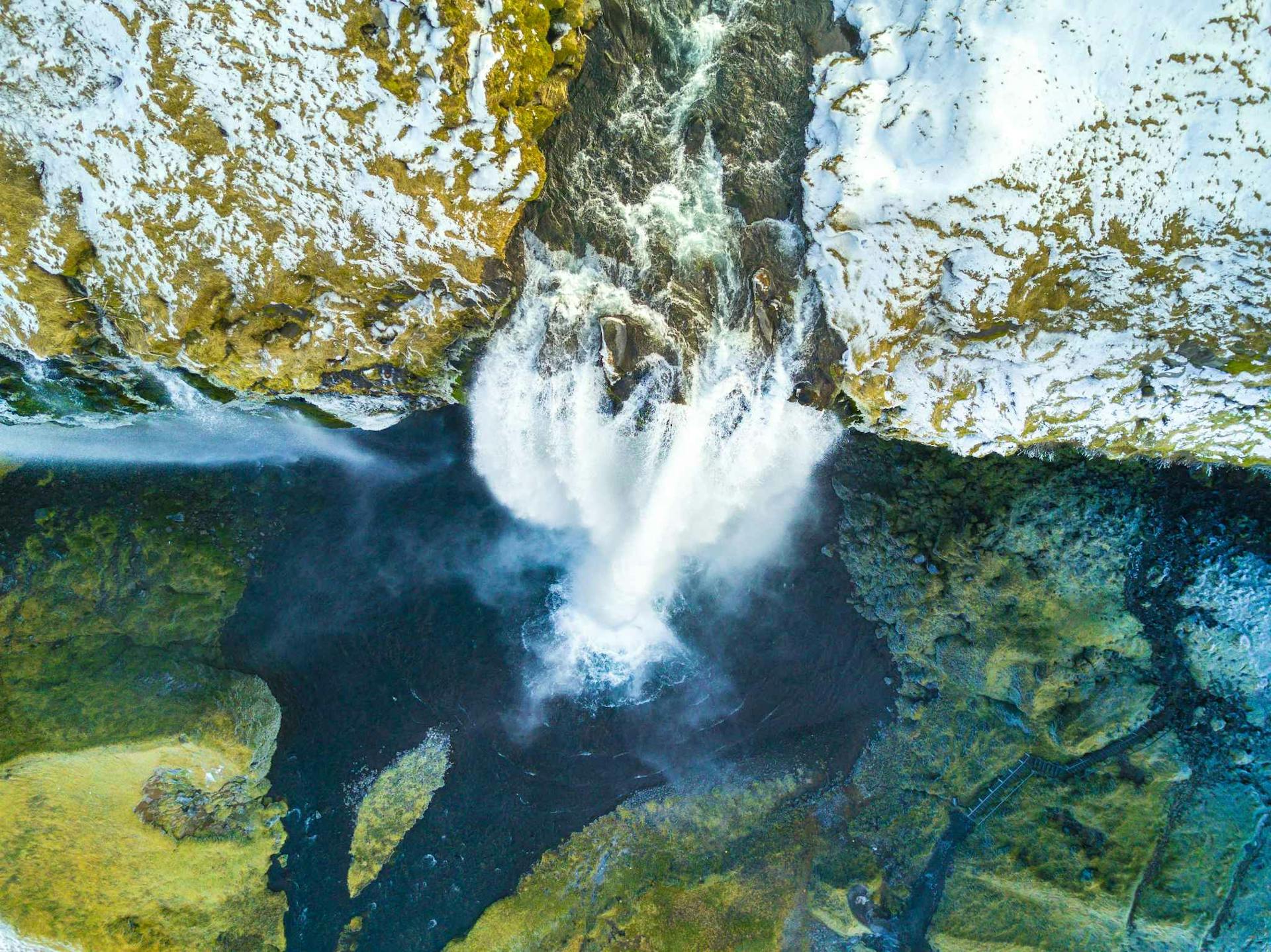
Are there many gas stations open?
There are plenty of gas stations on the main routes. However, as you travel into more remote areas along the ring road, they become less frequent. Always top up your tank when you can and never let it get too low. This is especially vital during winter driving.
What about emergency services in remote areas?
Iceland has excellent rescue teams ready to help. If you run into trouble, call the emergency number 112. Ensure you have your GPS location handy. Don't worry, even where cell service is patchy, they are effective. The most important thing is not to take unnecessary risks in the first place, especially with respect to black ice and high wind speeds.
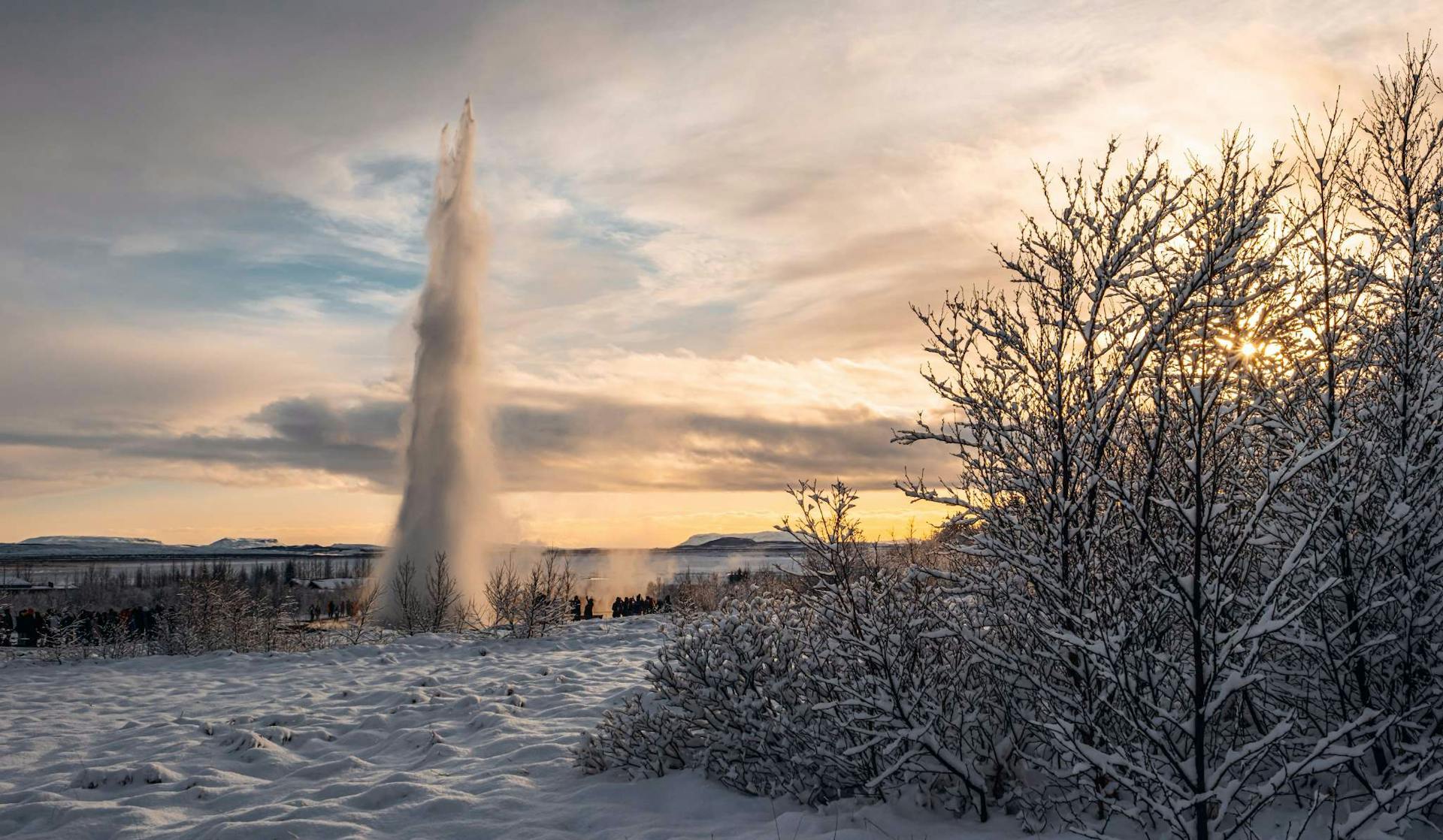
How do I avoid road closures?
The best way to avoid being stuck on closed roads is to religiously check the official road condition website multiple times a day. Pay attention to the weather forecasts and any orange or red warnings. Flexibility in your travel plans is key to a stress-free trip.
How do I handle heavy winds?
Strong winds are a major feature of the Icelandic winter. If the wind speeds are above 20 m/s (45 mph), you need to be extremely cautious. Park your vehicle facing into the wind if possible to minimise the chance of damage to the doors. If the wind is dangerously high, find a safe, well-maintained campsite and wait. Trying to push through will only reduce visibility and put you at risk.
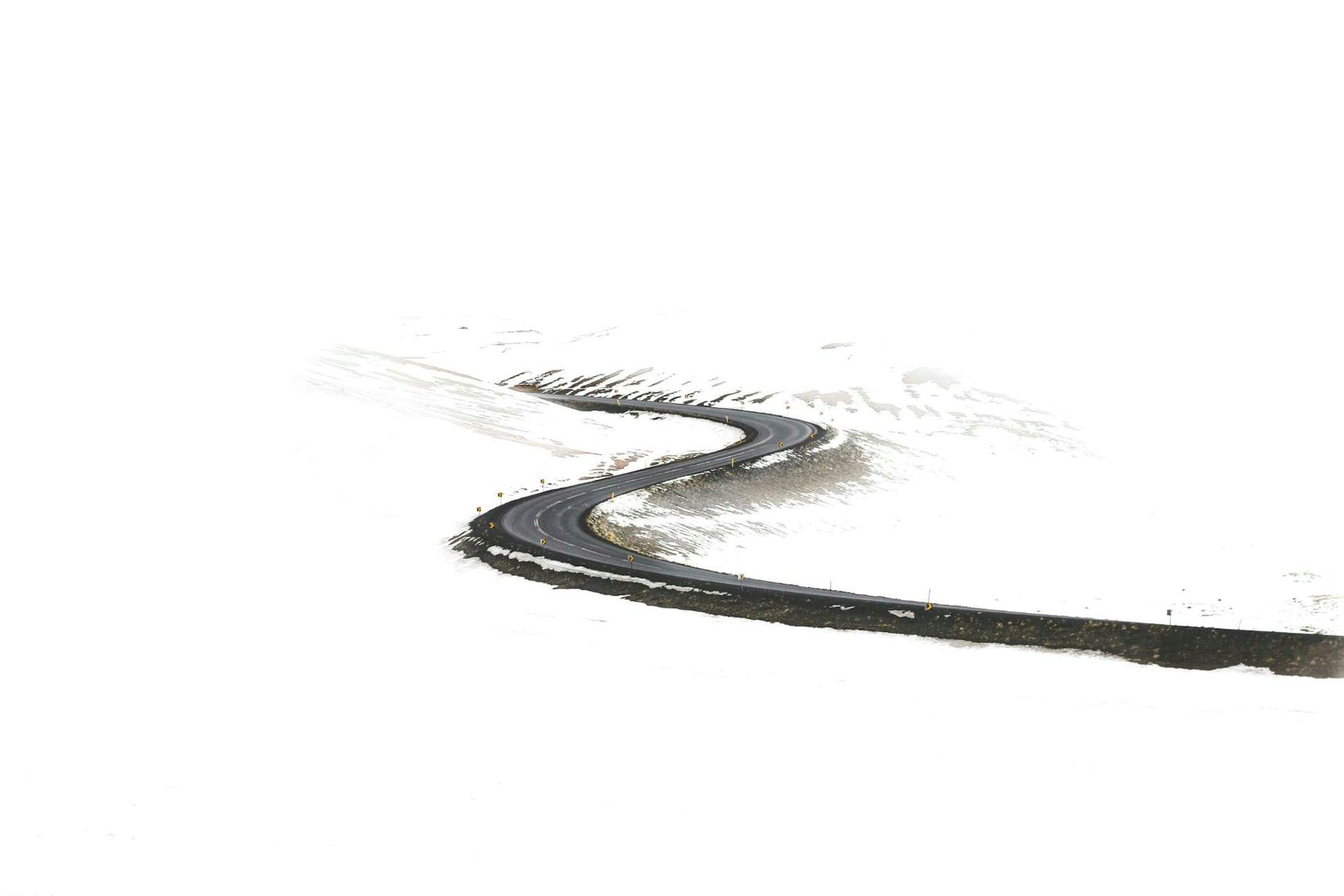
What is the best part of camping in Iceland in winter?
The absolute best part is the freedom to chase the light and the northern lights. Being in control of your destiny, with the ability to warm up and make a hot drink right in your van, is fantastic. Plus, the experience of winter camping with fewer tourists makes those spectacular hot springs and sights like the ice caves feel even more rewarding. It truly makes the adventure feel like a grand expedition!